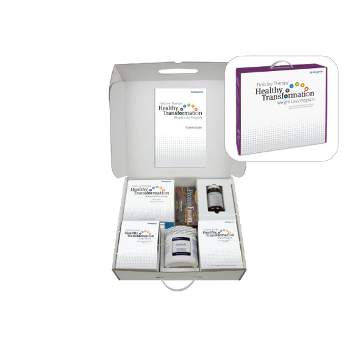Nearly half of all Americans make annual New Year’s resolutions, and people who explicitly make resolutions are ten times more likely to attain their goals than people who don’t. However, only 8% of people are ultimately successful in achieving their resolutions. Why is this? How can you be more successful?
In this article, I’ll share with you the best ways to ensure that you fulfill your New Year’s resolution. Even if you have never been able to stick to your resolutions in the past, or have never bothered making one before, these simple and effective strategies can improve your odds substantially to become part of the 8% and help you make significant changes to your life.
Why can resolutions be so hard?
About 75% of people maintain their resolution through the first week but, after that, the numbers start to plummet with only 46% making it past six months. Why do we lose motivation so quickly for something that felt so important to us a short time ago? Initially, we get by on sheer enthusiasm and optimism, but eventually succumb to poor planning. We need all the help we can get, because long-term resolutions are incredibly challenging to the brain. The brain cells that operate willpower are located in the prefrontal cortex and are the same cells that help us stay focused and handle short-term memory and solving abstract tasks.
An experiment at Stanford University shows how difficult it is for us to both stay focused and exhibit strong willpower. Researchers gave students either a two-digit or seven-digit number to remember. After a short walk through the hall, they were offered the choice between a slice of chocolate cake and a bowl of fruit for a snack.
Those trying to remember seven-digit numbers were more likely to choose the chocolate because researchers speculate the extra numbers they had to remember took up valuable space in the prefrontal cortex (what the researchers refer to as a “cognitive load”) that made resisting a delicious dessert much more difficult. This experiment is a good real life example of how challenging it is for us to do two things at once that involve the same part of the brain. Knowing that New Year’s resolutions are a biological struggle makes it that much more important to set ourselves up for success. Here are some simple things you can do:
Make a well defined, realistic goal
To be effective, resolutions need to be specific. “Go to the gym three times a week” is much better than “exercise more” or “get into shape.” It is significantly more difficult for our brain to focus on abstract goals that are not tied to a specific behavior. Also, be sure to only choose one goal. As we learned from that study at Stanford, it is hard enough for the brain to focus on one challenge — let alone two.
However, don’t be afraid to break your goal down into smaller, easier-to-manage steps. If your goal is to lose 35 pounds in a year, it may feel less daunting to aim for something like a three pound reduction in weight each month. Regardless of how you break it down, choosing a concrete, measurable and achievable goal gives you the opportunity to plan exactly how you are going to accomplish your goal over the course of the year.
Plan ahead
Proper planning is a key component of New Year’s resolution success. Although many like to “wing it” and figure things out as they go, that’s exactly how so many people end up falling short of their goals. Use an organizational tool, such as a calendar, to outline each step you will take to meet your goal. Putting concrete plans on paper about when, where, and how you are going to do something leads to much higher success rates.
If you are looking to get in shape this year, think of small steps to take that will bring you closer to your goal (such as “join a gym today,” “buy new running shoes,” “bike for 30 minutes”) and write them on the calendar to turn ideas into actions with specific dates. Also, think ahead when putting yourself in a situation in which you will be tempted to veer from your resolution.
If you’re going out for dinner with friends, and you would normally get a big meal that would take you further away from your weight loss resolution, have a plan for a healthy meal you will order before you get to the restaurant and stick to it. Many restaurants have their menus online – plan ahead and don’t let your whims to try the ‘special of the day’ take you away from your weight loss goal. You don’t have to completely avoid situations in which you may betray your resolution; just be aware of temptations, plan ahead, and stay committed.
Tell people about it
It can be beneficial to tell friends and family your resolution so that they can serve as a support network. Although some may fear voicing their goals to others, worrying about backlash or embarrassment if they fail, making a public commitment adds motivation. That being said, don’t share with negative people; only those you can trust to be a positive cheerleader or coach. If you can find someone who shares the same goal (or at least a similar one), it’s very helpful to have another person to help hold you accountable and who can also understand and encourage you when you are doubting yourself or are tempted to give up.
It’s also good to write down your progress, which is a form of telling someone about it. Write down how many pounds were lost, miles ran, minutes exercised, or what steps you have made toward accomplishing your goal. You can write these things in your calendar or blog (somewhere you can come back and review). New activity trackers are great for this.
Give yourself the tools to succeed
Resolutions are difficult, so it helps to have everything you need to make it easier on yourself. Two of the most common goals I personally see patients pursue in the New Year are weight loss and completing a detoxification program. Both of these goals are highly worthwhile, but can be difficult to plan for on your own. Fortunately, there are a couple of high quality, success-based programs that can help you plan for success.
If your resolution involves weight, the Healthy Transformation Program can help. It is a clinically-designed program that will guide you on the path to better health and make weight loss much easier. Many who struggle with weight have tried tips such as managing portion size, drinking water before and after meals, and avoiding eating after a certain time in the evening. But for most people, a highly-structured approach leads to much better results than trying to piece together small changes and adjustments to our eating habits. The reason many national weight loss companies are successful are because of a combination of accountability (weigh-ins and commitments) combined with planned meals. The tips provided here can help with the commitment aspect and the Healthy Transformation program can help with planning meals.
Healthy Transformation is effective because it is a high-protein, high-phytonutrient (greens), low-glycemic (sugars) index plan that emphasizes a carefully-designed balance of macronutrients (like carbs and fats) and micronutrients (such as vitamins and minerals) that is intended to help burn fat. For more information about weight and Healthy Transformation, click here.
If your resolution is to detoxify your body and experience the positive changes it brings this year, I recommend the VegeCleanse 21-Day Detox Program by Designs for Health. Detoxification is a terrific way to feel great in the New Year, because there are millions of toxins, chemicals, additives, and preservatives in our food, air, and water that can be removed from our bodies to help us feel younger, healthier, more energetic and mentally sharper. The supplements in this high-quality detox program help the body change hard-to-remove, fat-soluble toxins into more easily flushed-out water-soluble substances. To learn more about what detoxification can do for you, read my article, Are Detox Diets Really Necessary? by clicking here.
Don’t beat yourself up
One of the biggest reasons that people abandon their resolutions is because they cave in one time (or a couple times) and do something that breaks their resolution, such as eating that dessert, smoking that cigarette, or skipping the gym on a planned workout day. Rather than giving up, forgive yourself for the stumble and move on. After all, you’re far better off forgiving yourself than abandoning the whole process and putting it off for another year.
Reward yourself
Now let’s discuss the best part of keeping up your New Year’s resolution – the reward! Anybody attempting to keep a New Year’s resolution should determine an exciting reward that adds extra motivation. While keeping the resolution is part of the reward, researchers have found that the end result of following through on a resolution is not sufficient enough motivation by itself to keep most people committed for the whole year.
The reward shouldn’t be something that blatantly contradicts your goal, but should be something related that motivates you. For example, if you’re losing weight, plan on going shopping for new clothes once you reach your target weight. A special reward can add the extra element of motivation and determination to keep you on track. And above all, be sure to share your results with others.
Remember that if you have any questions regarding the concepts discussed here or anything else, you can reach our customer service team at customerservice@oakwaynaturals.com.
Yours in health,
Dr. Gregg Gittins













Comments are closed.